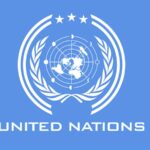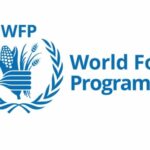The United Nations special rapporteur on trafficking in persons, Maria Giammarinaro, has called on the Nigerian government to fund agencies mandated to prevent trafficking.
It comes as she ended her week-long tour to assess human trafficking in Nigeria.
In a statement of her findings at a briefing in Abuja, she called for dedicated budget at federal and statement as resources to civil society groups working with trafficking victims and survivors.
“I was taken aback to learn that the Government, while valuing the contribution of CSOs in anti-trafficking work, has not been providing any financial support to ensure sustainability of their work,” she said.
“CSOs have had to scramble for funding from private entities and international donors.” She called for support for the National Agency for Prevention of Trafficking in Persons.
“The uniqueness of a specialized agency to combat trafficking is important,” said Giammarinaro.
“However I fear that this may have the risk of other public agencies with a mandate to combat trafficking delegating anti-trafficking cases/work to NAPTIP, instead of doing their part in coordination and cooperation with the agency.”
“Implementation and enforcement are proportionally linked to the capacity of the various institutions, including law enforcement agencies and the judiciary, to exercise their mandate and functions in relation to the fight against trafficking.”
“In this regard, I am convinced that lack of resources, training and equipment for the various public offices involved in the fight against trafficking are important obstacles to robust implementation and enforcement.”
Giammarinaro also called for NAPTIP to open its shelters, insisting “closed shelters” were a concern that infringes on the “freedom of movement of survivors and perpetuating the false assumption that victims of trafficking have to be locked up for their security, even though they have not committed any crime.”
“I would like to stress that shelters managed by civil society organizations are open and are in fact used by NAPTIP itself to refer its victims after the six-week period of stay in NAPTIP shelters has expired.”
“This shows that operating open shelters for victims of trafficking is possible and does not imply major security problems.”
“On the other hand, six weeks is a very short period compared to the intensive counselling required to ensure rehabilitation of survivors.”
“However, the mere fact that a specialised government agency relies on the work of civil society organisations in providing assistance and protection of trafficked persons in the long-term, clearly shows the need of appropriate funding for CSOs.”

 Join Daily Trust WhatsApp Community For Quick Access To News and Happenings Around You.
Join Daily Trust WhatsApp Community For Quick Access To News and Happenings Around You.


